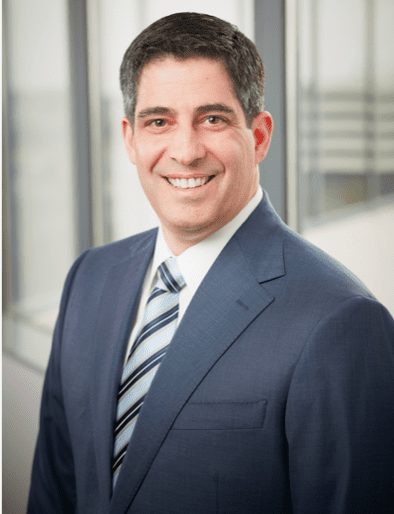Editor’s Note: Mike King of Peraton is the winner of the Chief Officer Awards Private Company CGO Award announced June 17.
On June 17, WashingtonExec will be virtually celebrating the most impactful and innovative C-suite executives in government and industry. These chief officers work in technology, security, data, operations, finance, business and more, excelling on both sides of the government contracting sector. Our team of judges have chosen the finalists for the inaugural Chief Officer Awards, so before we announce the winners during the event, we wanted to get to know the finalists a bit better. This Q&A series highlights their careers, successes, proud professional moments and notable risks.

Mike King is the chief growth officer of Peraton and a finalist in the Private Company CGO Award category.
What key achievements did you have in 2019?
Peraton was formed in 2017 as a spinout from a much larger organization. We had to build a company that already had 125 years of heritage, but with the infrastructure and processes of a startup. Even though we performed well throughout that process, winning new business and executing on strategies aligned to our core value proposition proved difficult.
We made progress throughout 2018, but 2019 presented a significant challenge for the company, with more than 30% of our annual revenue going through competitive recompetes.
Our investments in the growth engine of the company were successful, as we secured 98% of all recompete dollars bid and expanded our customer base with significant new work in key market areas across the Department of Defense, intelligence community and federal agencies.
The marquee win for 2019 was NASA’s Space Exploration Network Services and Evolution contract. This contract has a 5-year ordering period with a maximum value of $1.8 billion. We achieved a book to bill over 2x, increased our bid volume and increased our capture rates. At the end of 2019, we added approximately 65% to the total company backlog since the beginning of 2018.
What are you most proud of having been a part of in your current organization?
Peraton has transitioned from a set of individual programs that were no longer a fit for the legacy company to a new, next-generation national security company with the scale and capabilities to engage across all emerging warfighting domains. I am proud to have helped build a company from the beginning. Even more so, I am proud of our employees’ embrace of the vision to build Peraton as a new company.
It would have been easy for our 3,000+ employees to remain stuck in their legacy cultures and organizational dynamics. What I’ve seen over the past two years is that our employees, both heritage employees that were part of the original organization and new employees that have joined from our subsequent acquisitions, have fully embraced this journey as we continue to grow Peraton.
What’s one key thing you learned from a failure you had?
My daughter is a middle-schooler and one of her classrooms has a sign that says “F.A.I.L. is your first attempt in learning.” While it may appear to be a silly slogan, there is a lot of merit to it. Leading a growth organization, I understand that failures will occur — we will not win all of our competitive procurements. If we win every effort, then we are not taking enough risk.
Knowing that under my leadership successes will be marked with failures, I’m comfortable with failing. However, I’ve learned that failure stings less when I know that I did everything possible to create the potential for success. I know that I won’t always do that for my teams and those that count on me, so when I fail I also try to never repeat the same mistake.
What’s the biggest professional risk you’ve ever taken?
I’d like to think I’ve taken several big risks throughout my professional career. Thinking holistically, the biggest risk taking happens when everything is on the line and the outcome of the risk could result in dire consequences. For me, my first job out of college illustrates risk perfectly.
After graduating from James Madison University, I moved to the Washington, D.C., region and into an apartment that I selected primarily because the first month was free and I needed a paycheck first before I could afford rent. Two weeks into my job, I realized that the tasks I was hired to do and expected to deliver for my company were not going to be successful for the company. The market dynamics just did not work.
I risked my employment by meeting with my boss and CEO to challenge my own position. To the credit of the CEO, he listened and asked me what I recommended. We talked through a different idea and he gave me the latitude to completely change the job focus. My changes created a new business area for the company and we became quite successful in that area.
While I probably didn’t realize how risky my action was at the time, if leadership in that company was different, I would have been a wet-behind-the-ears kid with no professional experience sitting in my new apartment with no way to pay rent.
Thankfully, it all worked out, and it also taught me a great leadership lesson that I try to apply in my daily interactions with early career employees.
Looking back at your career, what are you most proud of?
I am most proud of the relationships I have formed throughout my career. I am lucky to have worked for only four companies in the course of my professional life. That time on station has allowed me to build some significant professional and personal relationships. It has allowed me to witness the professional progression of many young employees that are now leading others.

